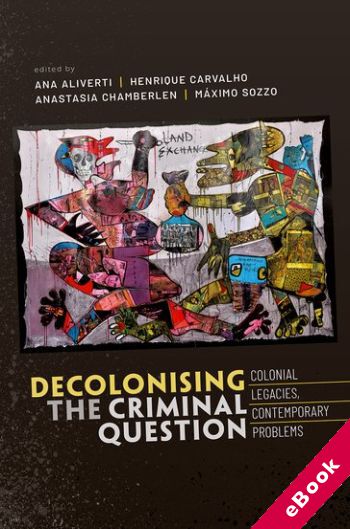
The device(s) you use to access the eBook content must be authorized with an Adobe ID before you download the product otherwise it will fail to register correctly.
For further information see https://www.wildy.com/ebook-formats
Once the order is confirmed an automated e-mail will be sent to you to allow you to download the eBook.
All eBooks are supplied firm sale and cannot be returned. If you believe there is a fault with your eBook then contact us on ebooks@wildy.com and we will help in resolving the issue. This does not affect your statutory rights.
Within the discipline of criminology and criminal justice, relatively little attention has been paid to the relationship between criminal law, punishment, and imperialism, or the contours and exercise of penal power in the Global South. Decolonising the Criminal Question is the first work of its kind to comprehensively place colonialism and its legacies at the heart of criminological enquiry.
By examining the reverberations of colonial history and logics in the operation of penal power, this volume explores the uneasy relationship between criminal justice and colonialism, bringing relevance of these legacies in criminological enquiries to the forefront of the discussion. It invites and pursues a better understanding of the links between imperialism and colonialism on the one hand, and nationalism and globalisation on the other, by exposing the imprints of these links on processes of marginalisation, racialisation, and exclusion that are central to contemporary criminal justice practices. Covering a range of jurisdictions and themes, Decolonising the Criminal Question details how colonial and imperial domination relied on the internalization of hierarchies and identities — for example, racial, geographical, and geopolitical — of both the colonized and the colonizer, and shaped their subjectivity through imageries, discourses, and technologies.
Offering innovative conceptual and methodological approaches to the study of the criminal question, this work is an essential read for scholars not only focused on criminology and criminal justice, but also for scholars in law, anthropology, sociology, politics, history, and a range of other disciplines in the humanities and social sciences.